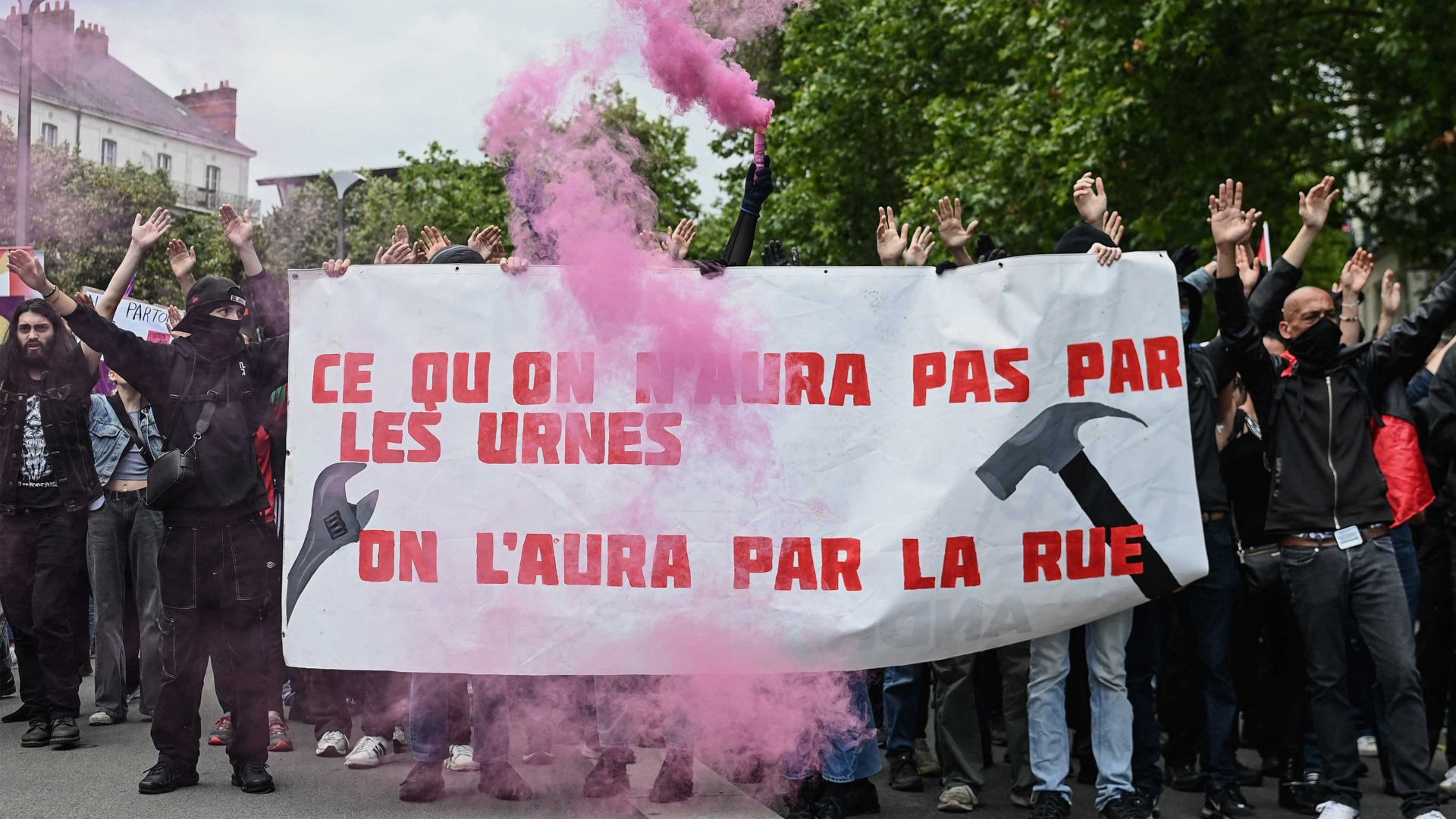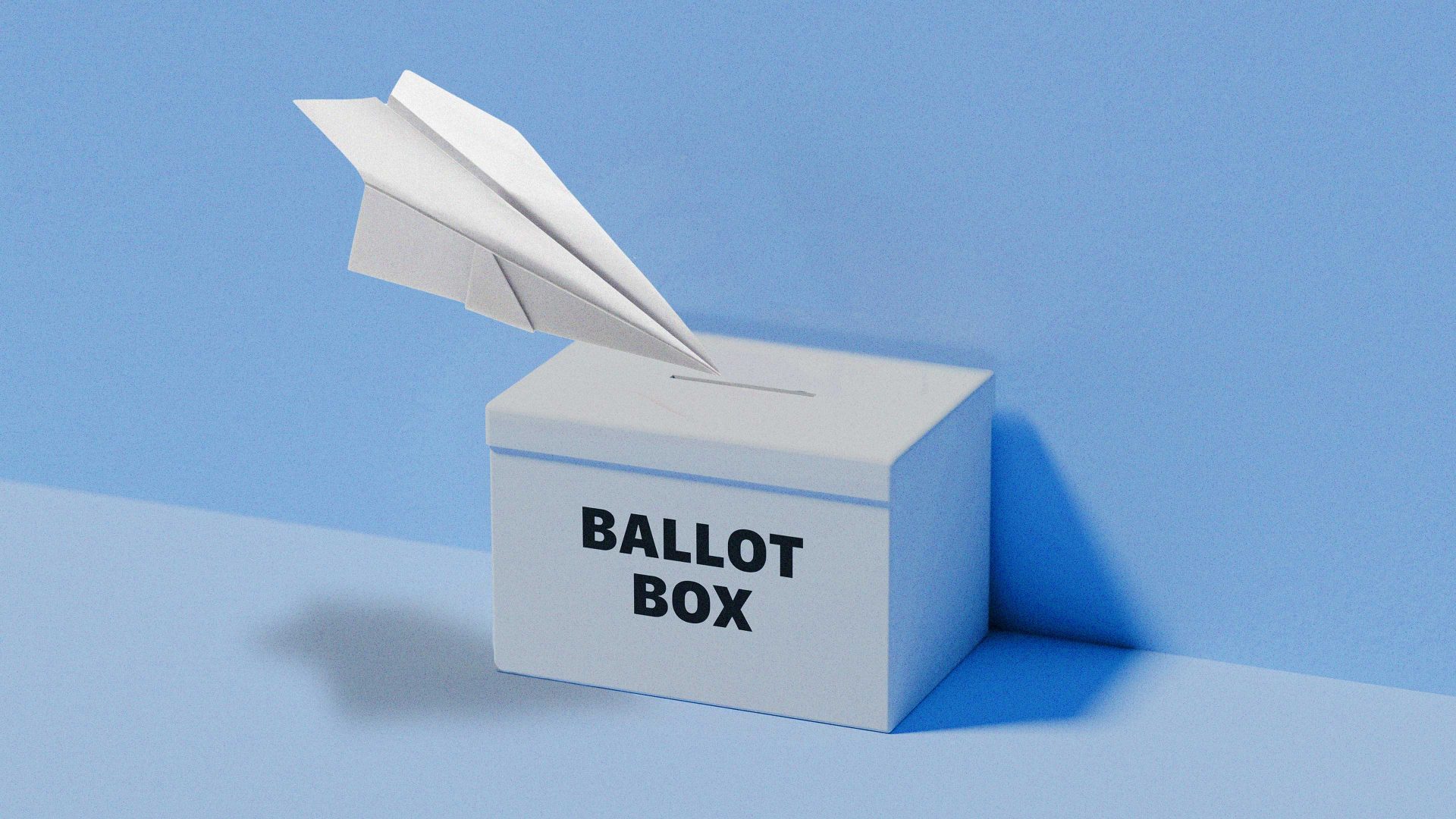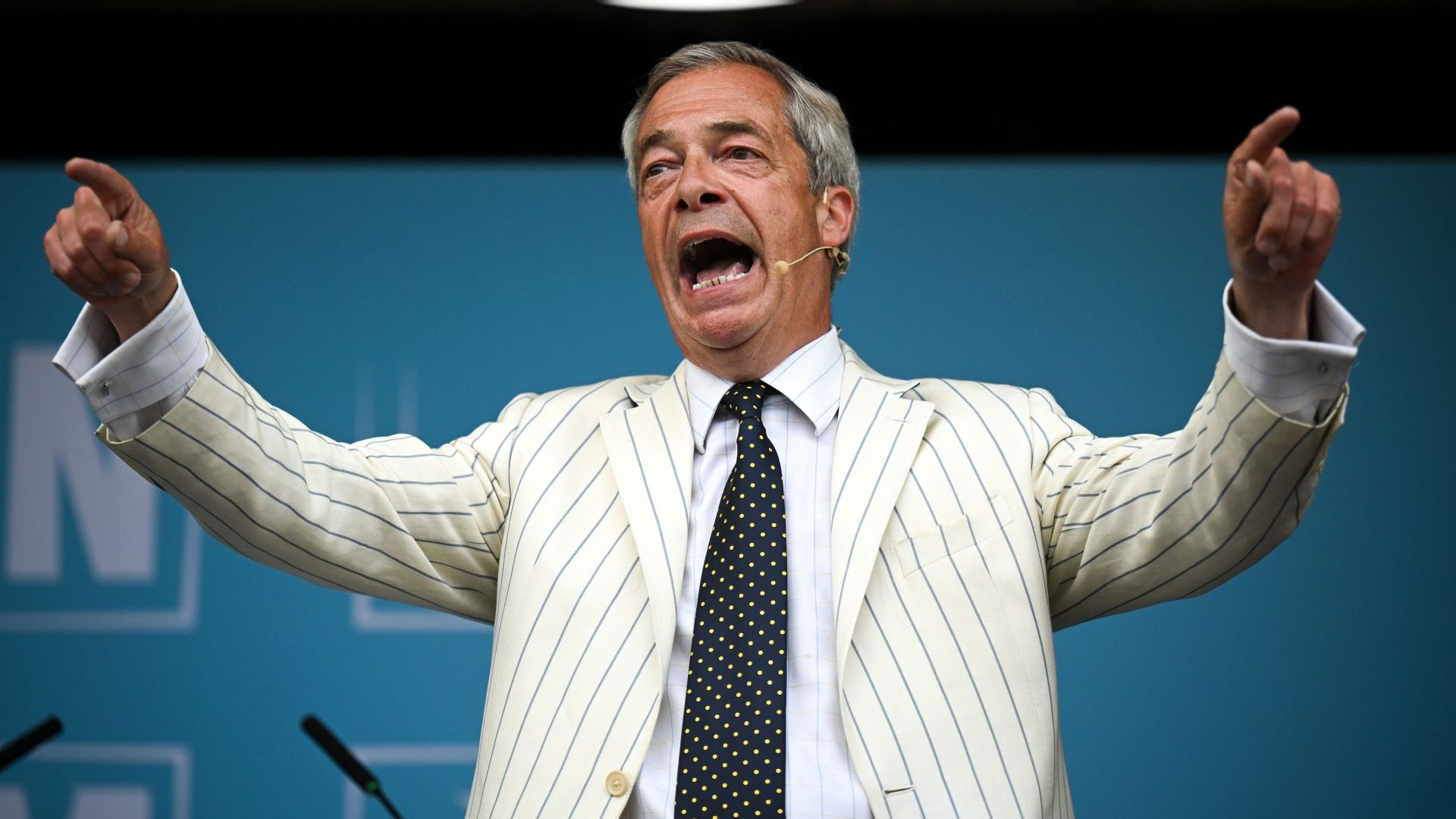In Grenoble, south-east France, a group of men are playing boules. It’s Wednesday, only a few days after the results of the EU election. I’m in the park, hunting voters behind the rise of Marine Le Pen’s party, Rassemblement National (RN), which seems set to achieve another victory, this time in national elections. It’s a grey day. The soft click of the metal balls mirrors the game’s name: pétanque.
I wait until the winner has been decided before approaching. Raul, an unsmiling fiftysomething man, agrees to talk. He voted for Raphaël Glucksmann’s socialist party during the European elections. “I voted for the environmental policies,” he explains. “The socialists had a better chance than the Greens.”
I ask if he was shocked by the election results. He shakes his head. Has he met many Le Pen voters? “I’ve never knowingly talked to one,” he says, and looks at me sternly. “I hardly know anything about politics.” He spends the next few minutes schooling me on the culture behind Grenoble’s left wing politics. Does he have any theories about Emmanuel Macron’s decision to call a national vote? “No,” he says, “absolutely none.”
Time to move on. I mull over this mixture of political engagement and reticence, while recalling the words of Benoît, an engineer who lives in my village. “I don’t care about politics,” he’d told me. “It’s corporations who run everything. Politicians get paid so much money, and they change nothing.” His manner suggested that, by asking political questions, I was playing into their hands.
Only 51.5% of eligible French voters participated in the EU elections. Uncertainty about national turnout makes it difficult to predict the outcome of the parliamentary vote, but after Le Pen’s party proved almost twice as popular as Macron’s Renaissance on June 9, the president is in urgent need of a miracle.
Two dogs tear past me, spraying muddy water into the air. “Are those yours?” cries an old woman in a pink coat. Her outrage suggests a willingness to talk. I ask her about the rise of Le Pen. “You make things worse, [and] people will look elsewhere for an answer,” she explains, almost shouting. “It’s simple maths!”
I ask her what has worsened. She doesn’t draw breath. “The migrants! They come here, take unemployment benefits and deal drugs on the side. The government must stop all assistance to migrants.”
She stabs a finger at my notebook. “Write that down!” When I admit my own foreign birth, she only chuckles: “but you’re not a drug dealer.” Gentle splashing comes from behind us – her granddaughter has taken inspiration from the dogs. The woman rushes off, energies directed elsewhere.
I head towards two North African men sitting within earshot. Noticing my approach, they walk away. It’s hard to blame them.
Instead, I corner Blandine, who’s teaching her daughter to cycle. Blandine was 42 when her daughter was born. Her arrival was a surprise. “I’d never planned to have children,” she says. “I worry for her future. My parents, anyone more than 10 years older than me, they don’t understand.” I ask her what she’s afraid of. “The usual things,” she says, and includes Le Pen’s rise among them. “I’m not optimistic.” She won’t tell me who she voted for.
An elderly couple sit on a nearby bench, their King Charles spaniel, Fiona, draped beside them. The woman directs my questions to her husband, whose initial earthy statements are unprintable. “I don’t vote!” he says. “Politicians just make things worse. Migrants everywhere you look. They’re all unemployed.” I trot out my usual admission of foreignness. The woman jumps in: “Not you. The Arabs, the black people. It’s the same where you come from!”
I see two young men, vaping and chatting in Arabic by the sports field. Would they be willing to talk to me about the upcoming elections? “Sorry. We don’t speak French, only Arabic.” If it’s an excuse, it’s polite.
That weekend I attend one of the dozens of anti-RN protests taking place in France. Police count 250,000 nationwide participants, the trade unions say it’s many more. A friend declines my invitation, afraid things could become violent. It starts in dribs and drabs. Chanting is low-key. Protesters wander along the city’s main street, many pushing prams or wheeling bikes.
The crowd is so large it overspills its finishing point at the Place de Verdun. Amid numerous umbrellas, placards warn of a return to Vichy. No speeches are made. Time to go. After the rain, I retreat to the cinema. A film about the emperor Caligula is advertised. I buy a ticket for a comedy instead.
Isabella Redmayne is a recent graduate. Her fiction has most recently been published by t’ART Press




